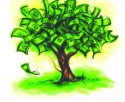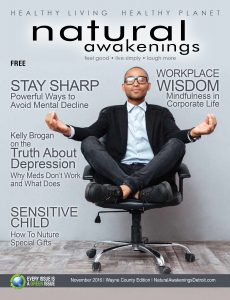 Many Americans that are struggling financially may not know where to turn for help. Financial struggles can happen to anyone, no matter the socioeconomic background, race, gender, age or geographic location. Often hidden behind the disguise of having what everyone else appears to have, financial problems can be buried in outright denial. Here are positive steps that anyone can take to deal with financial distress.
Many Americans that are struggling financially may not know where to turn for help. Financial struggles can happen to anyone, no matter the socioeconomic background, race, gender, age or geographic location. Often hidden behind the disguise of having what everyone else appears to have, financial problems can be buried in outright denial. Here are positive steps that anyone can take to deal with financial distress.
First, it is comforting to realize that no one has to be alone in these situations; this recognition is the first step away from the guilt and shame that keeps the struggle concealed in secrecy. Emotional support in the form of a therapist and local support group can help emotionally while one is learning the steps to change.
The second step is to remember it took time to get into the financial bind, and it will take time to get out of it. When we feel overwhelmed and hopeless, it is important to talk to another person and not to go it alone.
The third step is to make a commitment to delve into the reason for the present situation and to learn action steps along the way that will keep one from falling back into debt. Like a child on the playground first learning to climb, rather than looking at how hard the task will be, it is better to look where we want to go, at what is reachable, and to look for encouragement and help to proceed, little by little. It is important to feel good about small accomplishments and to reward oneself.
Many resources exist for educating oneself on the topic of debt reduction and for getting started. Libraries and bookstores are readily available and stocked with books. Money management shows on television and radio feature experts, such as Suze Orman, Dave Ramsey, Jean Chatzky and David Bach, many of whom offer websites with free tools and step-by-step assistance.
Often we do not realize just how much we are spending on a monthly basis; for example, if, every morning, we buy a cup of coffee and take-out food, it may seem convenient at the time but the reality is “Can we afford it over time?” Convincing ourselves that we’ve used a coupon, punch card (buy 6, get one free) or special promotions sounds great in budget-conscious theory, but if one adds it together month after month, the bigger picture emerges. Making a conscious choice to eliminate those types of habits is an easy way to quickly see a difference in having cash available for needs rather than wants.
Another very useful tool is a budget worksheet, which can be found online and should be completed monthly, at first. It is important to do in conjunction with balancing your bank accounting. After three months of this, awareness of one’s cash flow becomes acute. It’s very important not to feel down on oneself at this point in time; instead, keep in mind the positive steps that have been taken. Continuing to fill out the budget worksheets every three months and reassess the steps that are being taken to change our spending patterns. A year of this exercise provides abundant revelations.
Becoming aware of the relationship of debt versus income can be achieved by consulting with debt consolidation agencies (usually free) that also offer for-fee options for them to coordinate lowering all credit card interest rates by making one lower lump bill payment. They will pay the credit card companies per the arrangement agreement. Another option is to call one’s creditors and negotiate the interest rates personally. This is an exercise in patience but will enable the debtor to save money on fees that would have gone to the debt consolidation agency. Credit When Credit is Due is a book that teaches people how to base financial choices on an appropriate income-to-debt ratio.
Becoming a happy and educated consumer is a rewarding journey. Young adults that embrace financial discipline early and stick to a budget plan will reap the rewards of savings, as well. Even middle and high school students need this financial education to empower them to always be savvy consumers. For someone that has lived years with debt, it may seem daunting. However, sitting down with a partner to address one step at a time can help greatly.
Kathleen Ruhl, owner of Bourgeau Design, has been a graphic designer in the advertising and publishing industry for 34 years, as well as a fine artist and author of the self-published book, Architectural Artistry, Historical Places Around Detroit, available at Blurb.com/bookstore/ detail/99550. Her portfolio is available at KathleenRuhl-artist.weebly.com.
Help for Getting Out of Debt
Here are some more resources that can help individuals with education and management related to debt and finances:
Credit When Credit is Due [2008 Edition]
Detroit Free Legal Aid Clinic, Inc. – DetroitFLAC.com
Emotions Anonymous – EmotionsAnonymous.org
Greenpath Debt Solutions – GreenPath.com
Henry Ford Behavioral Health Services
159 Kercheval Ave., Grosse Pointe, 313-640-2588
3031 W Grand Blvd., Ste. 700, Detroit, 313-874-6677
42633 Garfield Rd., Ste. 314, Clinton Township, 586-436-7936
5111 Auto Club Dr., Ste. 112, Dearborn, 313-317-2000
Legal Aid and Defender Association – LADADetroit.org
Jean Chatzky – JeanChatzky.com
Suze Orman – SuzeOrman.com
Dave Ramsey – DaveRamsey.com


